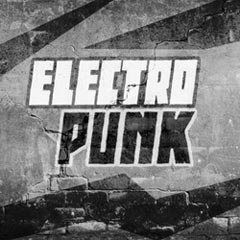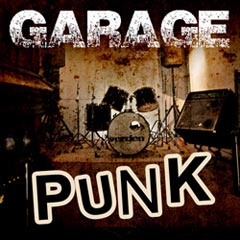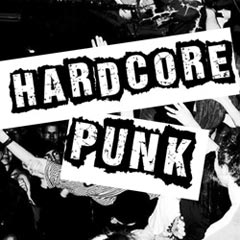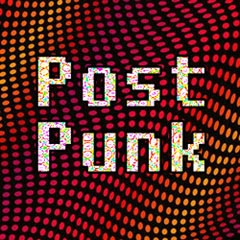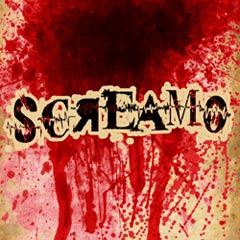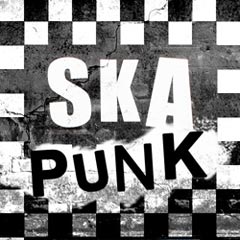Punk
ON AIR - PROGRAMMING
Raw and simple, direct, gritty guitar, quick drums, raw and unkempt sounds and voices delivering anarchic messages. High and colorful mohawks rebelling against the system. Do you ever pump up your day with the tunes of classic Punk music? Have you ever heard those blasting guitars, energetic drumming and that wild vocal vibe that can be found nowhere else but in punk music? What about the Anarcho-punk scene where politically energized lyrics come together to create an edgy soundscape of social disparity? By listening to punk music, there is so much one can take from it as stories of alienation and defiance gets retold each time a song plays. It's a musical genre that embraces elements such as attitude, anarchy and raw energy which captures your ear. Punk rock or punk music is a music genre that developed in USA, UK and Australia in the 1970s. It has fast songs, political themes, simple instrumentation and an anti-establishment attitude.
The Raw and Rebellious Sound of Punk Music
If you've ever felt the need to rebel, to rise up against the system, then punk music might just be the perfect soundtrack for you. With its gritty, guitar-driven sound, and raw, unpolished lyrics, punk music has been a beacon of hope and defiance for generations of music fans. In this article, we'll explore the history of punk music, the important role it has played in social and political movements, and the enduring appeal of its rebellious spirit.
Punk music emerged in the mid-1970s in the USA, UK, and Australia. It was a reaction to the perceived commercialization of rock music and the staid conformity of mainstream society. At its core, punk music was all about rejecting the status quo, challenging authority, and amplifying the voices of those who felt marginalized or oppressed. The punk ethos was summed up in the famous slogan no future - a scathing indictment of the bleak prospects facing the youth of the day.
One of the defining features of punk music is its raw and stripped-back sound. Unlike the slick, polished production of many mainstream genres, punk music was all about simplicity and directness. This was music that could be made by anyone, with minimal technical skills or equipment. The emphasis was on energy, urgency, and authenticity, rather than technical virtuosity.
Punk lyrics often deal with themes of alienation, frustration, and disillusionment. The music served as a cathartic outlet for those who felt trapped by the oppressive norms of society. At the same time, punk music also had a strong political dimension, with many songs railing against capitalism, government corruption, and social inequality. To this day, punk remains a potent source of inspiration for activists and protestors around the world.
The visual aesthetics of punk music also played a crucial role in shaping its cultural impact. This was a style characterized by outrageous hairstyles, unconventional fashion choices, and a DIY ethos that celebrated individuality and originality. The mohawk, for example, became an iconic symbol of punk subculture, with its high spikes and brightly-colored dye symbolizing the rebel spirit of the movement.
Whether you're a die-hard punk fan or simply someone who appreciates the power of music to inspire and transform, there's no denying the enduring appeal of this genre. Punk music may have started as a niche subculture, but its influence has spread far and wide, inspiring countless musicians, activists, and rebels along the way. So the next time you're feeling disillusioned or frustrated with the world around you, why not crank up some punk music and let the raw and rebellious energy of the genre wash over you? You might just find the inspiration you need to keep fighting the good fight.
The Raw and Rebellious Sound of Punk Music
If you've ever felt the need to rebel, to rise up against the system, then punk music might just be the perfect soundtrack for you. With its gritty, guitar-driven sound, and raw, unpolished lyrics, punk music has been a beacon of hope and defiance for generations of music fans. In this article, we'll explore the history of punk music, the important role it has played in social and political movements, and the enduring appeal of its rebellious spirit.
Punk music emerged in the mid-1970s in the USA, UK, and Australia. It was a reaction to the perceived commercialization of rock music and the staid conformity of mainstream society. At its core, punk music was all about rejecting the status quo, challenging authority, and amplifying the voices of those who felt marginalized or oppressed. The punk ethos was summed up in the famous slogan no future - a scathing indictment of the bleak prospects facing the youth of the day.
One of the defining features of punk music is its raw and stripped-back sound. Unlike the slick, polished production of many mainstream genres, punk music was all about simplicity and directness. This was music that could be made by anyone, with minimal technical skills or equipment. The emphasis was on energy, urgency, and authenticity, rather than technical virtuosity.
Punk lyrics often deal with themes of alienation, frustration, and disillusionment. The music served as a cathartic outlet for those who felt trapped by the oppressive norms of society. At the same time, punk music also had a strong political dimension, with many songs railing against capitalism, government corruption, and social inequality. To this day, punk remains a potent source of inspiration for activists and protestors around the world.
The visual aesthetics of punk music also played a crucial role in shaping its cultural impact. This was a style characterized by outrageous hairstyles, unconventional fashion choices, and a DIY ethos that celebrated individuality and originality. The mohawk, for example, became an iconic symbol of punk subculture, with its high spikes and brightly-colored dye symbolizing the rebel spirit of the movement.
Whether you're a die-hard punk fan or simply someone who appreciates the power of music to inspire and transform, there's no denying the enduring appeal of this genre. Punk music may have started as a niche subculture, but its influence has spread far and wide, inspiring countless musicians, activists, and rebels along the way. So the next time you're feeling disillusioned or frustrated with the world around you, why not crank up some punk music and let the raw and rebellious energy of the genre wash over you? You might just find the inspiration you need to keep fighting the good fight.
What are you thinking about?

